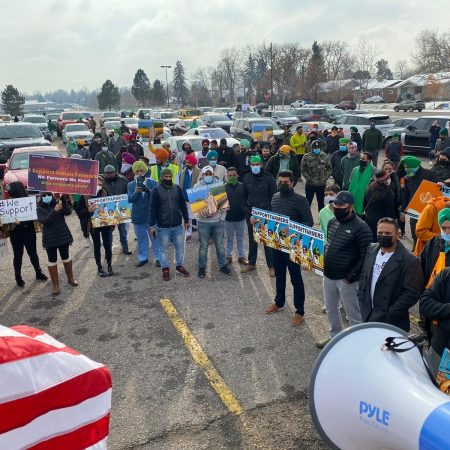Blogging with ‘Big Brother’
By Sumayyah Meehan, MMNS
The arrest of Saudi Arabian blogger Fouad al-Farhan in December of last year sent a loud and clear message to other bloggers in the Middle east that freedom of speech is still a new concept in a very old world. After 4 months in prison, Fouad was released this week vowing to help Saudi teens avoid getting trapped in terrorist networks and help them avoid serving time in prison like the teens he met while in jail who are serving sentences.
Governments across the Middle East take a very active policy when it comes to policing Internet content and blogs. The Ministry of Interior is the body in all Mideast governments that controls the two areas of the net where governments believe need the most monitoring – pornographic websites and blogs. When it comes to forbidden material like pornography most countries in the Middle East have adopted a zero tolerance policy and have broadly filtered access to such content that corrupts social morals. These countries include Iran, Oman, Saudi Arabia, Sudan, Syria, Yemen, United Arab Emirates, and Tunisia. And when it comes to political content, whether foreign or domestic, blogs are next on the Ministry of Interior’s watch list. It is no secret that blogs in the Middle East are monitored but how heavily depends on the country. For example, in the State of Kuwait where even the local press enjoys a wide scope of free speech, blogs are minimally monitored to ensure that both civil and political unrest are kept in check. Contrastingly, in a country like Iran even opening your ‘cybermouth’ to complain about political dissidence or lack of human rights in the country can land even the most cunning blogger in the slammer. All the countries in the GCC engage in some form of monitoring blogs whether they admit it openly or hid it.
GCC countries monitor blogs in an attempt to control the political atmosphere in the country and quash anti-government sentiment before it takes root on the web, which is the fastest way information, is spread these days. Speaking out against the rulers of your country or complaining about the lack of basic laws or human rights is a big ‘no-no’ in the Middle East. Recently, an Egyptian political dissident was arrested for blogging against the government and is still being held in prison. In another case, an American blogger living in Egypt was arrested for political comments he posted on his blog and his Arabic translator was hauled off to jail right with him. The American was eventually released whereas the translator remains behind bars.
Bloggers in the Middle East have good cause to think twice before they post on their blogs and some have even chosen to avoid engaging in politics online whatsoever. “I have never been arrested or been harassed for blogging,†shares Emad Salameh who writes the Amman Voice blog in Jordan, “However, I have to be careful in my words and must be objective. I positioned myself by writing about Socio-Economical and development related topics where nobody will have a problem. Many people write about Politics, I don’t. It’s not even my game.†However, several bloggers refuse to censor themselves even if it means entrapment or arrest. “I try my best not to censor myself because that would affect my writing negatively,†says Ahmed Al-Omran who writes the blog Saudi Jeans, “Still, some times you have to be careful when it comes to choosing your words or the way you approach sensitive topics. I am lucky that authorities have not contacted me in the past, but I guess this has a lot to do with the fact that I’m writing in English, which usually results in less monitoring.â€
While the governments in the Middle East may have a semi-iron fist on the way information is shared on the Internet, bloggers are slowing waking up and finding new alternatives to get their words out. Web 2.0 Applications like Gmail, Skype and micro-blogging tools like Twitter are simply too massive to be censored or blocked. However, portions of these applications can be blocked. For example, in Dubai Skype chat rooms are operational however the telephone services are intentionally blocked by the government because the Ministry of Communications relies heavily on revenues earned by the telecommunication habits of migrant workers placing international calls home each month.
The Internet has given bloggers around the World a voice, which they never had before. Even the threat of torture, arrest, or prison time is not likely to silence bloggers who have already tasted the sweetness of having their voices heard.
10-19













2008
4,582 views
views
0
comments